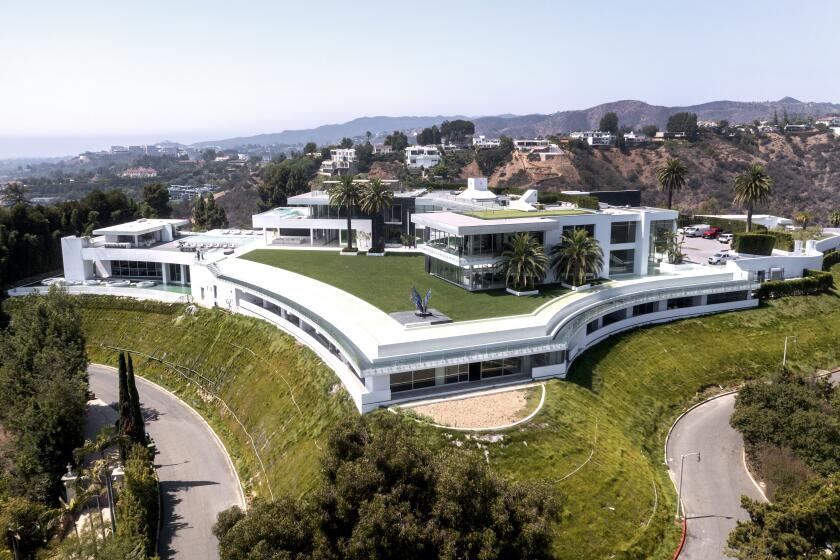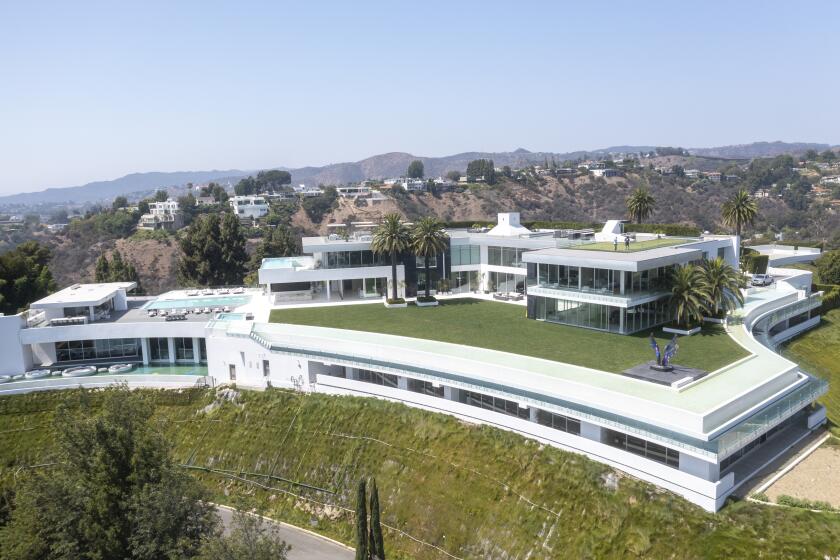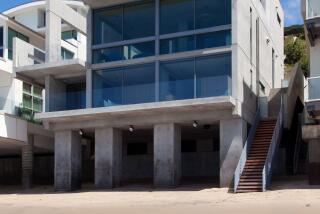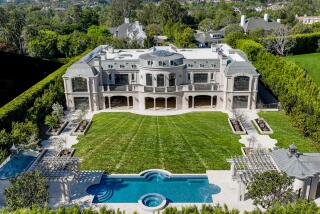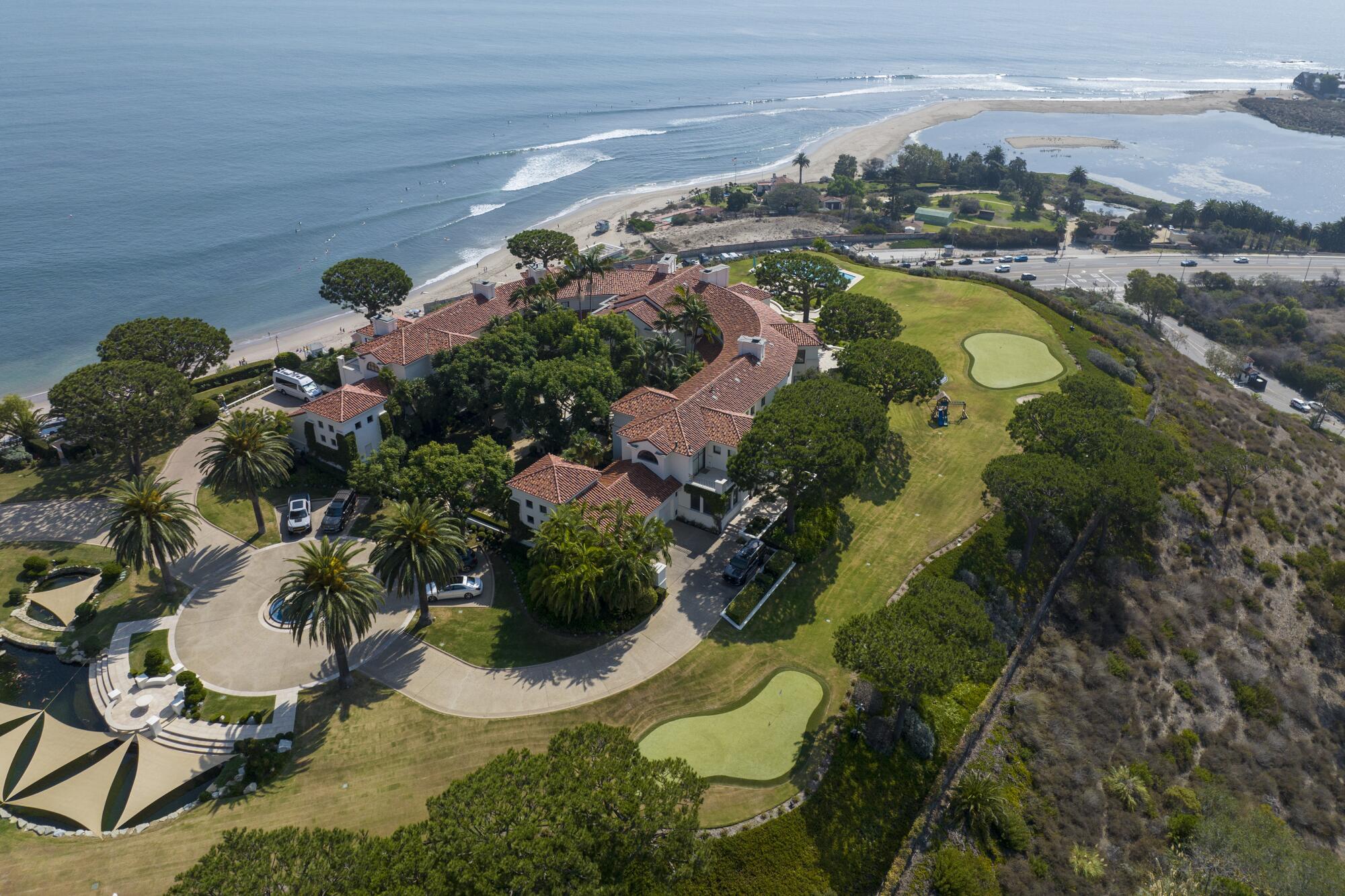
- Share via
For as long as he could remember, there was always that mansion on the bluff, its white stucco walls and clay tile roof visible above the ridgeline, peering down on Malibu’s famous coast.
From his perspective on Pacific Coast Highway, where his family owned commercial property, Sam Hakim was curious. What was it like up there? And who would own a house like that?
When a friend invited him along to a party thrown by the owner, a wealthy African government official and exotic car buff, he was blown away: 16.5 acres, a three-hole golf course and views from mountains to sea.
Several years later, in 2015, Hakim heard the estate was on the market. His immediate response: “We’ve got to get this house,” he recalled telling his broker.
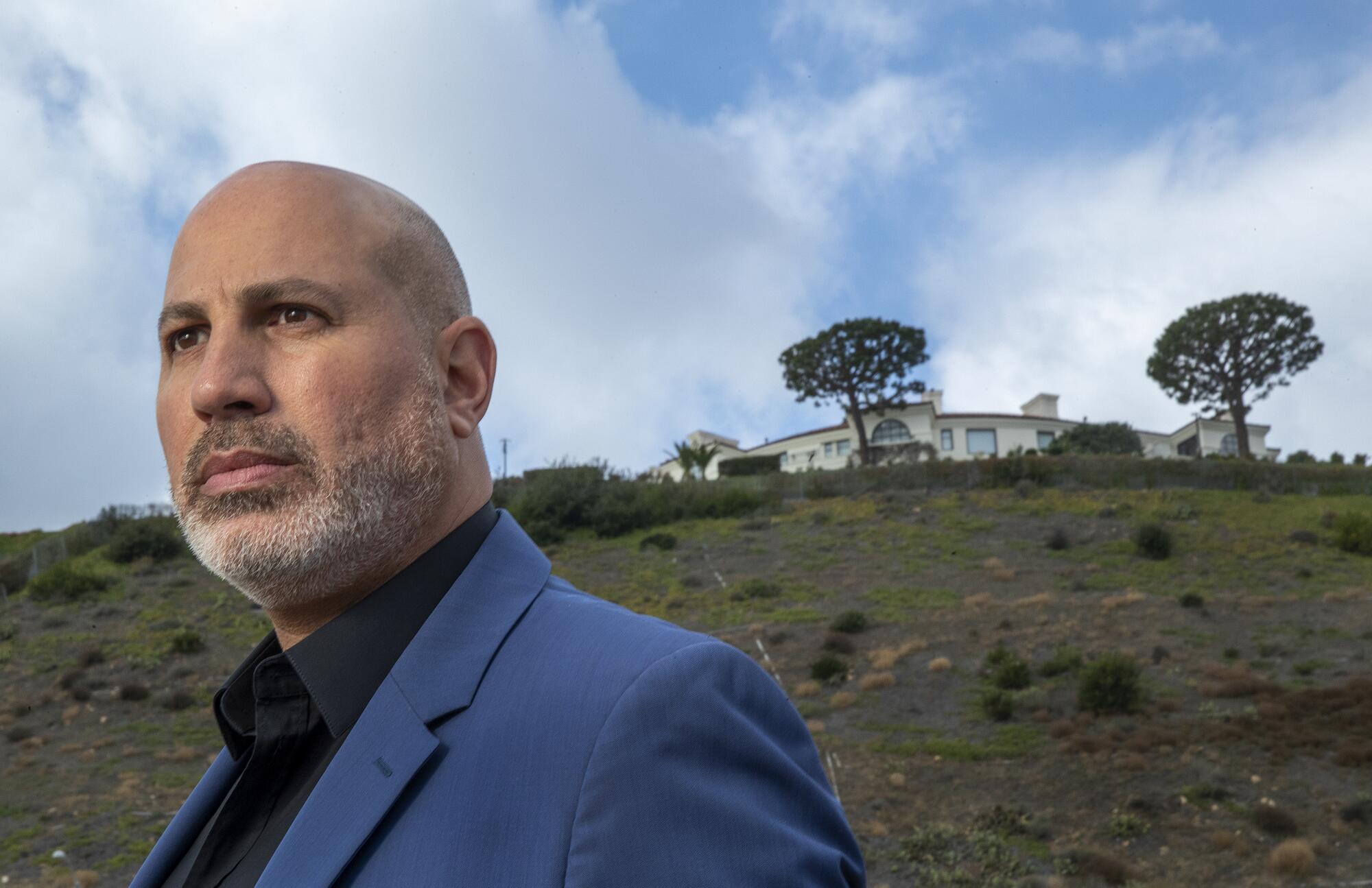
He bid $32 million for the Spanish hacienda-style home in the Serra Retreat neighborhood, upped his offer and — he says — let it be known he would pay even more. When he couldn’t work out a deal, he shrugged it off as just another lost opportunity.
That was, until Hakim came to suspect he had been defrauded, according to a lawsuit he later filed.
Seven years after the bidding, he’s enmeshed in litigation over the sale, which was handled by celebrity broker Mauricio Umansky, spouse of Kyle Richards, the veteran “Real Housewives of Beverly Hills’’ cast member, and now star of his own reality series on Netflix.
The idea was simple: Nile Niami would build and sell The One, the biggest and most extravagant new home in the country. Then things went sideways.
The resulting saga of power, corruption and allegations of deception involving multiple lawsuits and parties has played out from the courts of Los Angeles and the halls of Congress to as far away as the shores of Central Africa.
Umansky had been hired to sell the Malibu home after it was turned over to the government in an asset forfeiture case by Teodoro Nguema Obiang Mangue, the playboy son of the president of Equatorial Guinea. The U.S. State Department has described the African nation as a country where corruption and human rights abuses are common.
On “Real Housewives,” the personable broker — who had a co-listing on the Playboy mansion when it sold in 2016 for a record $100 million — has appeared as Richards’ loyal husband. On his new show, “Buying Beverly Hills,” he is the demanding but fair boss at the Agency, the luxury Beverly Hills real estate brokerage he co-founded 11 years ago.
In the litigation, Umansky cuts a far different figure.

He’s accused in lawsuits by Hakim and his agent of having violated his legal obligation to be a fair and honest broker.
“We have litigated many broker misconduct cases involving ultra-luxury residential properties in Southern California but have never encountered a case as unique and egregious as this one involving Mr. Umansky,” Jennifer Shakouri and Alan Hearty, attorneys at Allen Matkins who represent Hakim, said in a statement to The Times. “As a result of his misconduct, the people of Equatorial Guinea were deprived of substantial funds that should have gone to them.”
Two earlier lawsuits brought against Umansky have already been settled, while Hakim is seeking no less than $35 million in damages in his litigation. That lawsuit and his agent’s, which have been consolidated, are set for mediation this week; should it not result in a settlement, a trial looms next year.
Umansky has filed a motion to have the case thrown out of court. He declined to answer a lengthy set of questions but issued a statement through a representative.
“With the rapid growth of the Agency and the recent launch of our Netflix series, we have a lot to be proud of and thankful for. It saddens me that others seek to diminish our success by rehashing old news about a transaction that closed in 2016. I will not comment on the specifics of the ongoing litigation except to say that the allegations are false and I am extremely confident that we will prevail,” Umansky said.
A fast rise to the top
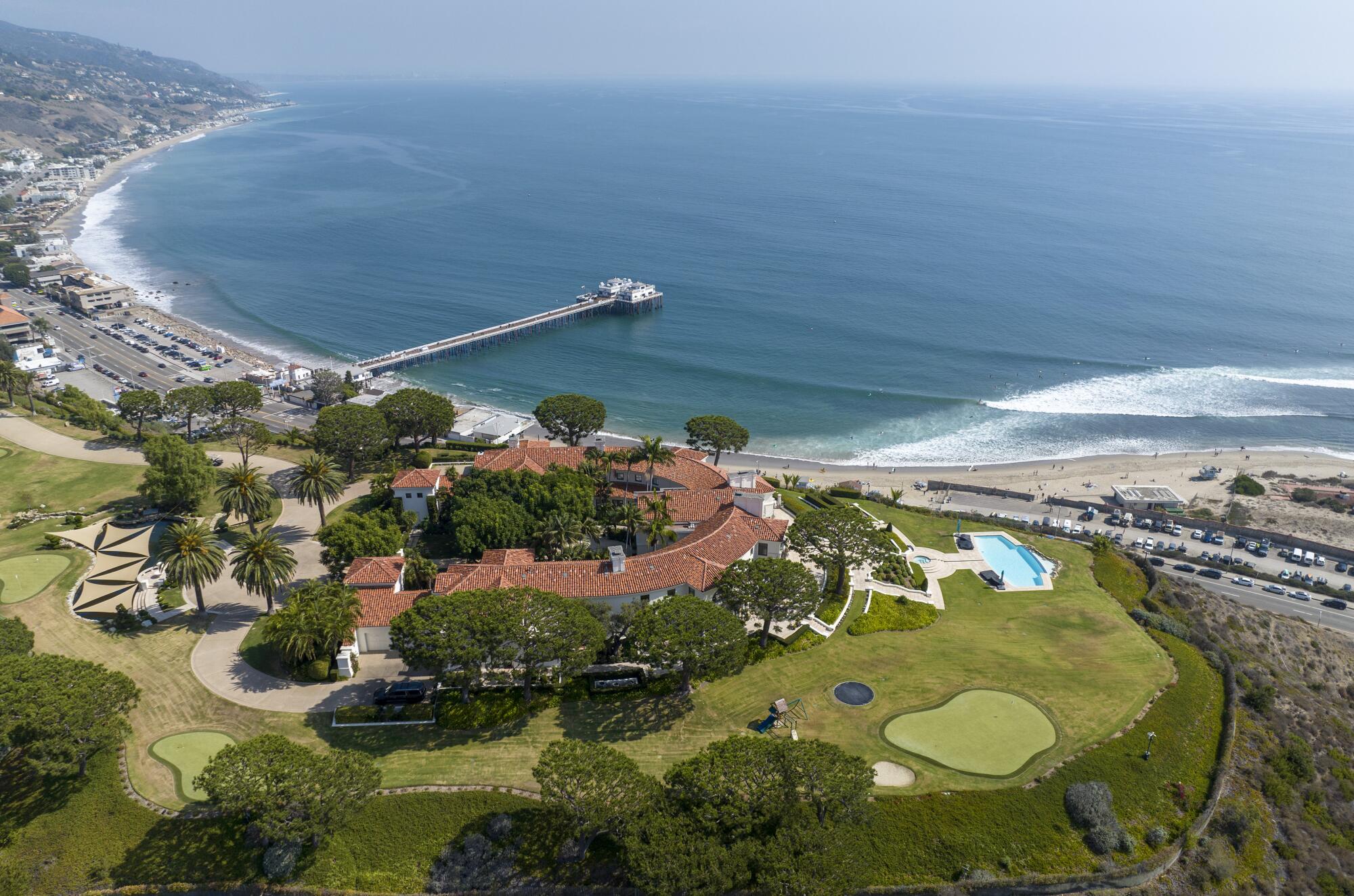
Sparkling in a gold lamé dress, Lisa Rinna stepped out onto the patio and sighed, taking in what she called “one of the most beautiful properties I have ever seen.”
It was September 2016 and the “Real Housewives of Beverly Hills” regular was at the Malibu mansion for a Great Gatsby-themed party, along with the show’s camera crews. Men in formal attire and women coiffed in flapper bobs dug into a giant platter of boiled crab, drank cocktails from an absinthe station and danced to piped-in music.
But the star of the ensuing episode was Umansky’s listing: 3620 Sweetwater Mesa Road, lovingly depicted in aerial shots, with wide angles that caught the vistas and close-ups of the water features. “Umansky’s Malibu listing,” blared a chyron. Guests gushed about the property, with TV personality Lisa Vanderpump putting it plainly: “If he sells this place, he’s going to make a s—load of money,” she said.
A dispute between bond king Bill Gross and a neighbor over an outdoor sculpture has devolved into police calls to their Laguna Beach mansions.
For the 52-year-old broker it was the culmination of a long climb. He was born to a Jewish family in Mexico City and lived there until age 6, when his family immigrated to Los Angeles. He told a real estate podcast that he had a congenital blood disease and spent much of his childhood hospitalized until he was cured.
Umansky attended USC but dropped out. His first job was at 22 working for his father in the textile industry before they bought a clothing company. He told the podcast that the company, called 90265, reached $30 million in sales before production problems forced it to be sold.
Already married to Richards and helping raise a daughter from her first marriage, he felt panic after being fired from a subsequent job at another clothing company. “I didn’t know how I was gonna put food on the table,” he said on “Buying Beverly Hills.”
Sign up for This Evening's Big Stories
Catch up on the day with the 7 biggest L.A. Times stories in your inbox every weekday evening.
You may occasionally receive promotional content from the Los Angeles Times.
The solution: He and his wife both got real estate licenses and leveraged a family connection. At 26, he joined the high-end residential brokerage Hilton & Hyland, co-founded by his brother-in-law Rick Hilton, who’s the grandson of the hotel chain’s founder — and husband of his wife’s half-sister, Kathy Hilton, another “Real Housewives” regular.
The Agency’s success has been enviable, as has Umansky’s. The broker, who goes by “Mo,” boasts of personally handling nearly $4 billion in real estate sales, and the firm now has more than 60 offices.
“People gravitate to him,” said former Agency agent Leonard Rabinowitz, now with a rival firm. “They like him and he’s fun — and he’s a good salesman.”
Already rising fast, he was soon to land the kind of client, and listing, that can make fortunes.
Wealth of a nation
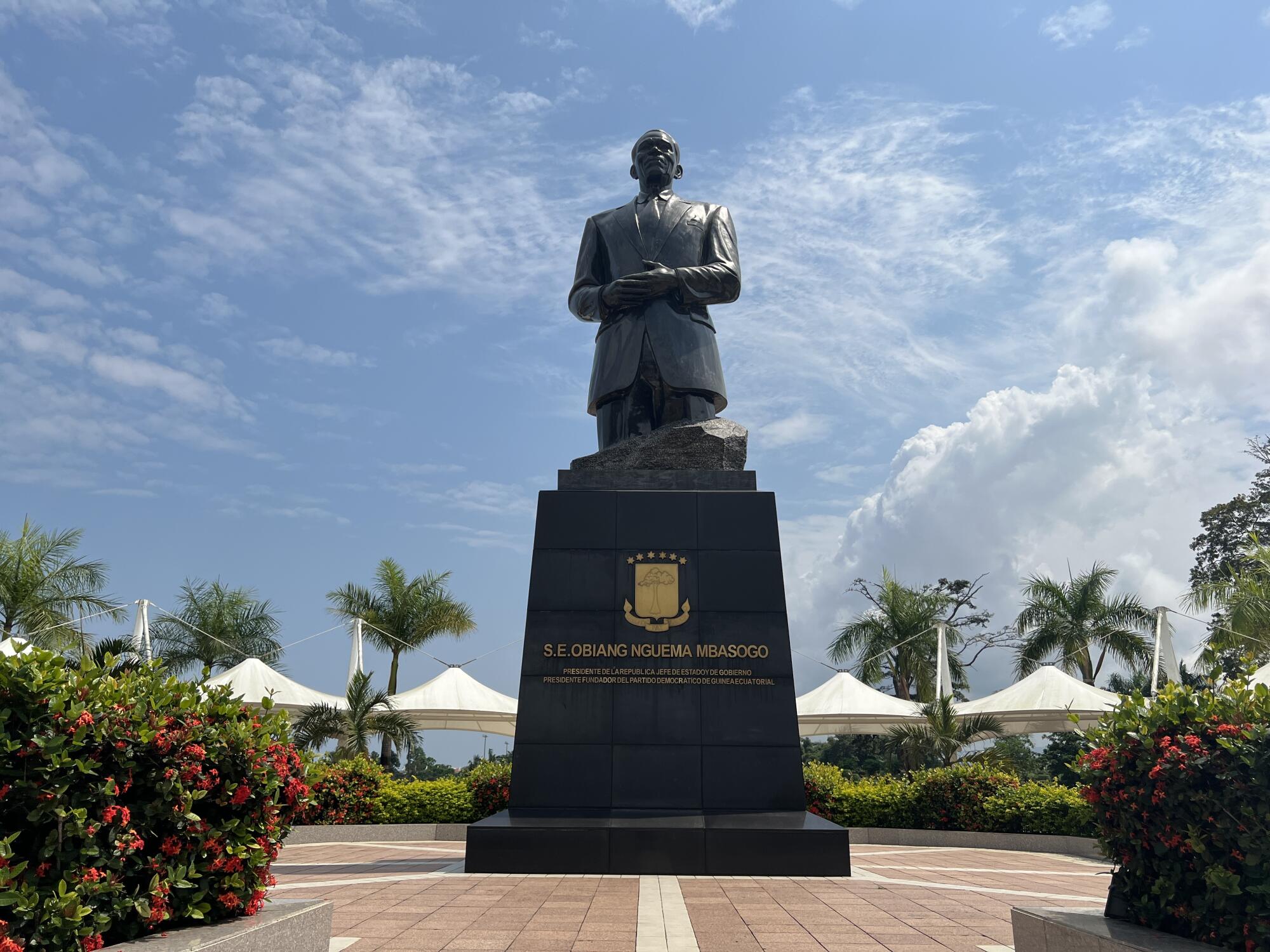

A land of tropical beaches and colonial cathedrals, Equatorial Guinea came into wealth after large offshore oil reserves were discovered in the former Spanish colony in the mid-1990s.
That most of the populace still lives in poverty is the result, say human rights groups, of misrule by Nguema’s father, leader since 1979 of a regime routinely accused of corruption and political repression.
The privileged son got a taste of Malibu life in his early 20s when he enrolled in an English language course at Pepperdine University in 1991. There, he often missed classes and partied hard, a lifestyle funded by a Houston oil company with a stake in one of his nation’s offshore fields, according to a 2009 report by Global Witness, an organization that tracks natural resources exploitation, corruption and human rights abuses.
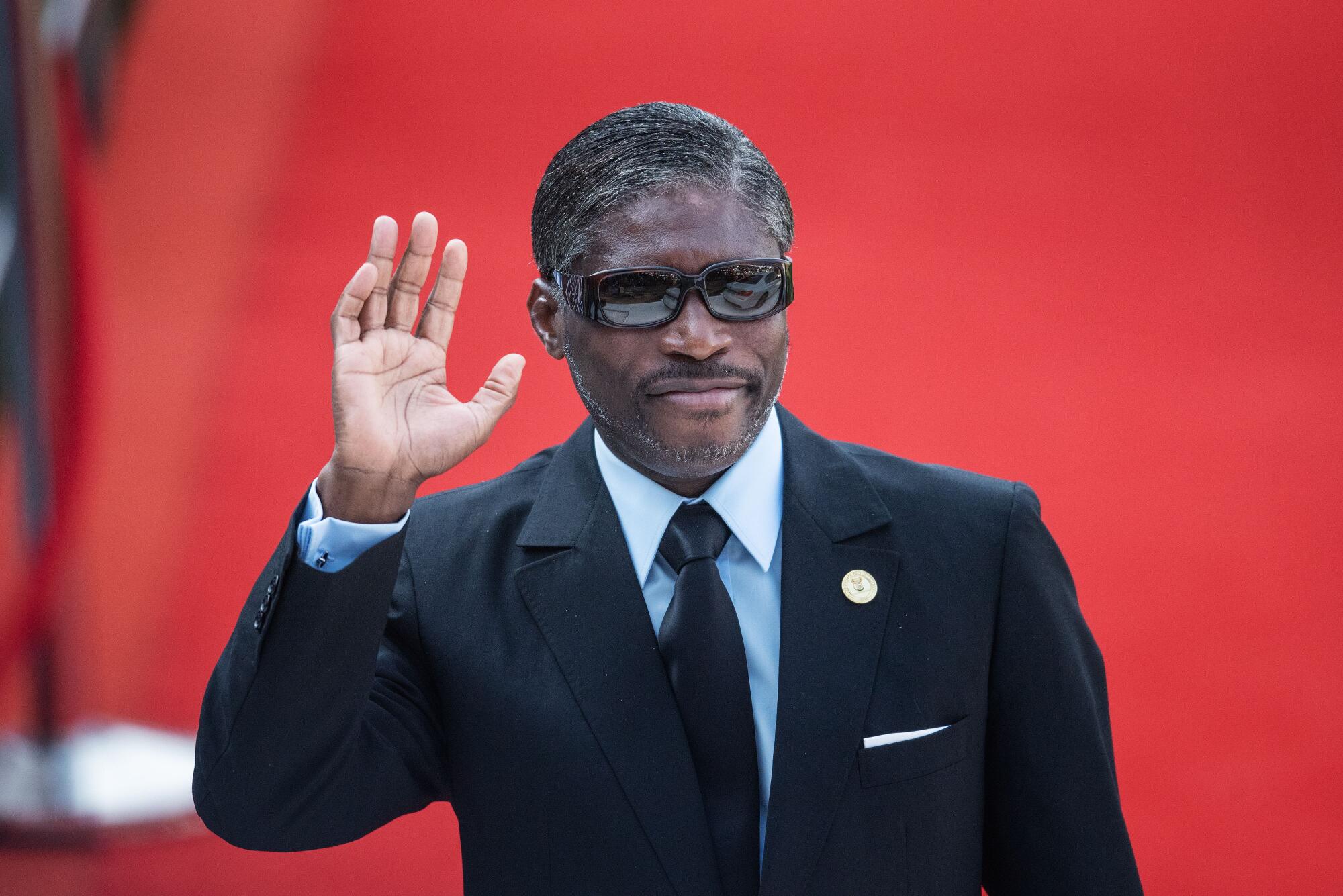
Nguema dropped out, according to U.S. prosecutors, and eventually settled back in his home country, where his father awarded him concessions in the lush tropical forests and later appointed him minister of forestry, fisheries and the environment.
By then the petrodollars were flowing. Spurred by allegations Saudi Arabian money had helped fund the 9/11 attacks, a 2004 report by the Senate’s Permanent Subcommittee on Investigations probing international money laundering found that Equatorial Guinea’s ruling regime and family members had deposits and loans totaling hundreds of millions of dollars at Riggs National Bank in Washington, D.C.
The regime has consistently denied corruption charges, labeling them colonial or imperialist interference in the country’s internal affairs.
U.S. authorities would allege that Nguema developed his own personal source of wealth, demanding millions of dollars of illegal payments from timber companies and government contractors, which allowed him to splurge on a mind-boggling array of overseas assets, toys and personal effects.
The shopping list, authorities said, included homes in Brazil, South Africa and Paris; a fleet of exotic automobiles that included seven-figure Bugatti Veyrons; Renoirs, Gauguins and other classic fine art, along with millions more spent decorating and improving his properties. He also bought a Bel-Air home he later sold.
Nguema particularly liked to spend time in the United States, and in 2006 he put down roots in his old stomping grounds, acquiring the Malibu mansion for $30 million from Karen Rabe, whose family’s production company syndicated “Wheel of Fortune.”
After years of construction, a foreclosure and a bankruptcy, the Bel-Air mega-mansion known as The One has sold at auction.
He hosted lavish parties and indulged his whims, including starting a hip-hop label that produced a couple of albums. He is said to have once shelled out $680,000 to rent the mega yacht of Microsoft co-founder Paul Allen to woo the rapper Eve, according to the Global Witness report.
After Michael Jackson died in 2009, investigators discovered that Nguema, who had become friends with Janet Jackson, had anonymously acquired at auction the world’s largest collection of the singer’s memorabilia, including his famous white crystal-covered Bad Tour glove.
A second report by the Senate subcommittee in 2010 alleged that from 2004 to 2008, Nguema employed lawyers, shell companies and other measures to move more than $100 million in suspicious funds into the U.S., where he bought luxury assets, including a $38.5-million Gulfstream V jet and the Malibu mansion.
So when the Obama administration in 2010 announced its Kleptocracy Asset Recovery Initiative, aimed at reining in large-scale public corruption in foreign states, Nguema was an obvious initial target.
The government’s asset forfeiture case the next year went after the home, the jet, the Jackson memorabilia and what was left in the U.S. of his exotic car collection.
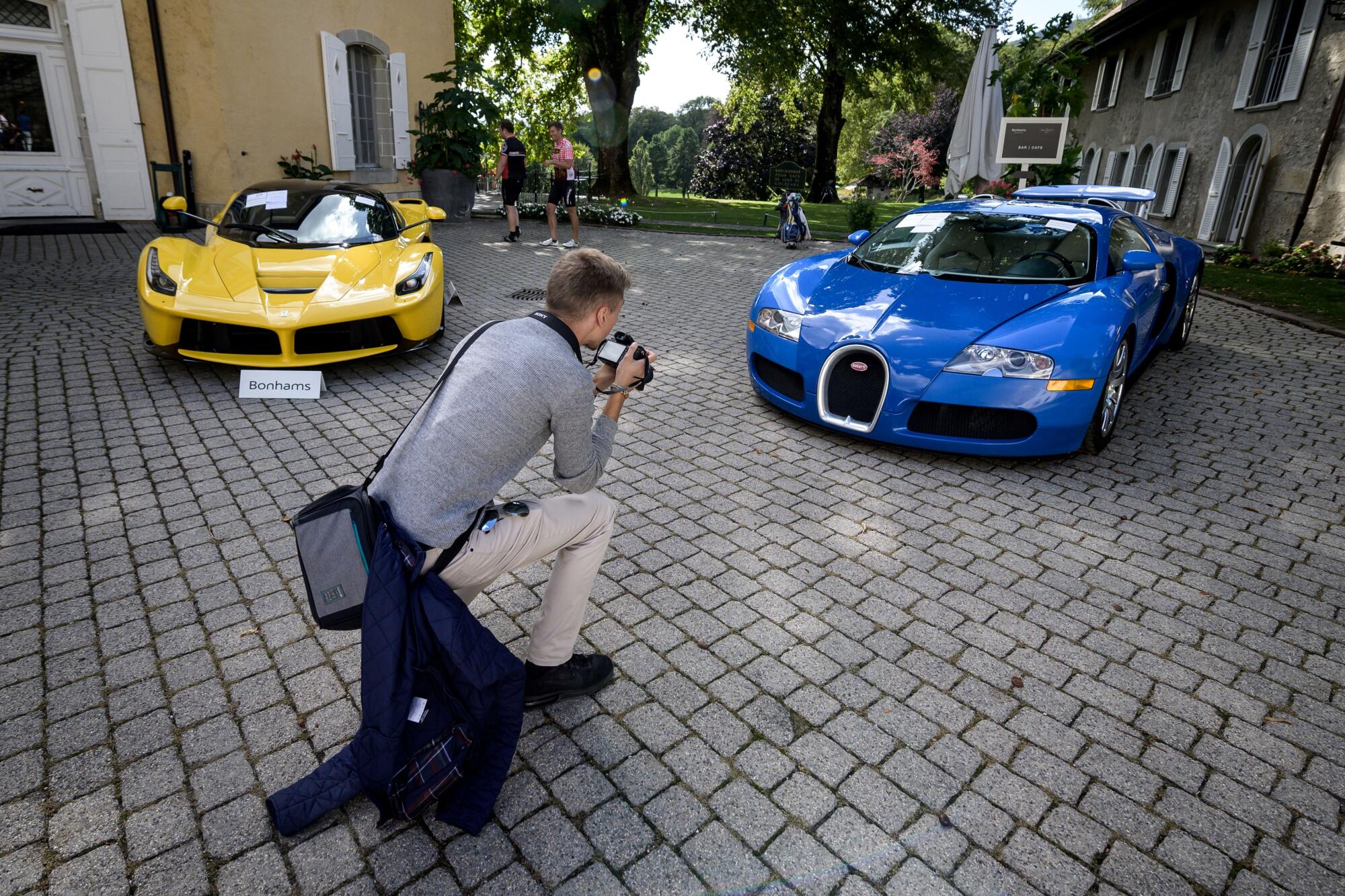
“Everyone knew that the Malibu mansion was his even though he bought it in the name of a shell company,” recalled Woo Lee, the first full-time prosecutor hired for the program, who is now an associate general counsel at Facebook parent Meta. “It was a little bit of an open secret.”
Prosecutors eventually reached a settlement with Nguema, who did not admit wrongdoing and has denied corruption allegations against him in other foreign legal proceedings.
One of Nguema’s Los Angeles attorneys requested questions about the allegations included in this article but did not provide answers after they were sent. The Equatorial Guinea embassy in Washington, D.C., also did not answer an email inquiry.
The 2014 settlement called for Nguema to sell the assets, forfeiting $10.3 million of the proceeds to the government, which would disburse them at its own discretion for the benefit of the people of Equatorial Guinea. An additional $20 million in expected proceeds were to go to a charitable organization in the African country chosen by both sides.
Now, Nguema and the government needed to find somebody to unload the mansion — someone with connections to the world’s wealthiest buyers.
Sweet deal
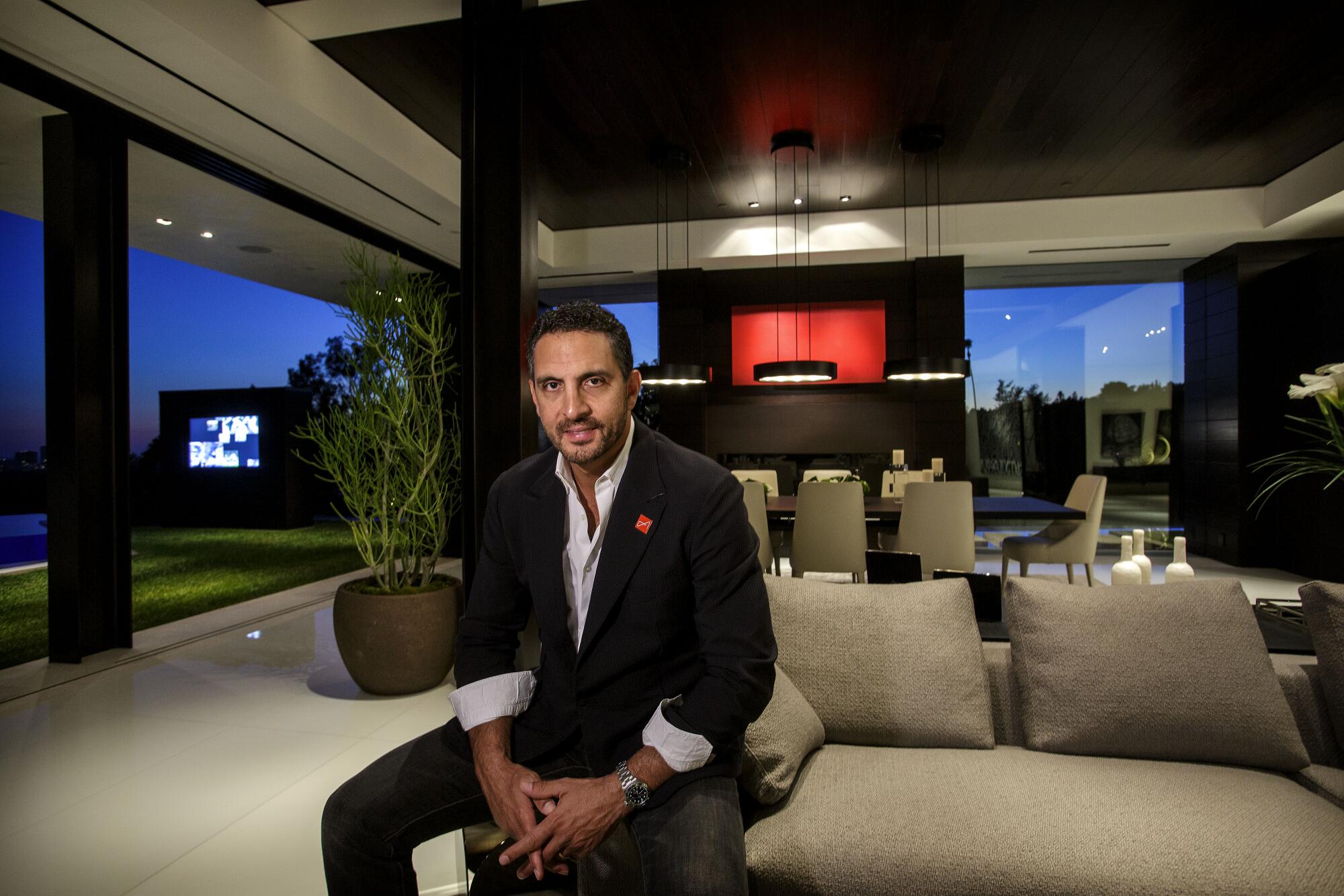
It had been only two years since Umansky had started his brokerage, but by 2013 the Wall Street Journal had ranked him the No. 3 residential broker in the country and the top seller in California with nearly $380 million in transaction volume the prior year. A Journal article touted the firm’s “proprietary” database of potential clients, full of personal data used to match buyers with properties.
“In today’s world, where potential buyers for a home in L.A. can come as easily from Shanghai as they can from Beverly Hills, you have to use more sophisticated methods,” Umansky’s partner, Billy Rose, told the paper.
The Malibu property seemed ripe for such an approach. The government’s agreement with Nguema required it to be appraised and sold for no less than its fair market value. The November 2014 appraisal came in at $32 million.
And the deal was sweet. Despite the government’s expressed reservations, the listing agreement called for a total 6% commission, on the higher side, according to a lawsuit Nguema later filed. Umansky’s brokerage also was able to represent the buyer, meaning the entire commission could be kept in-house.
Umansky was approved by the government as the listing agent in May 2015 and had the mansion under contract by December. The winning bid of $33.5 million came from a developer named Mauricio Oberfeld, who co-owned a Los Angeles luxury home builder.
As it turned out, the Agency didn’t need its database to find Oberfeld.
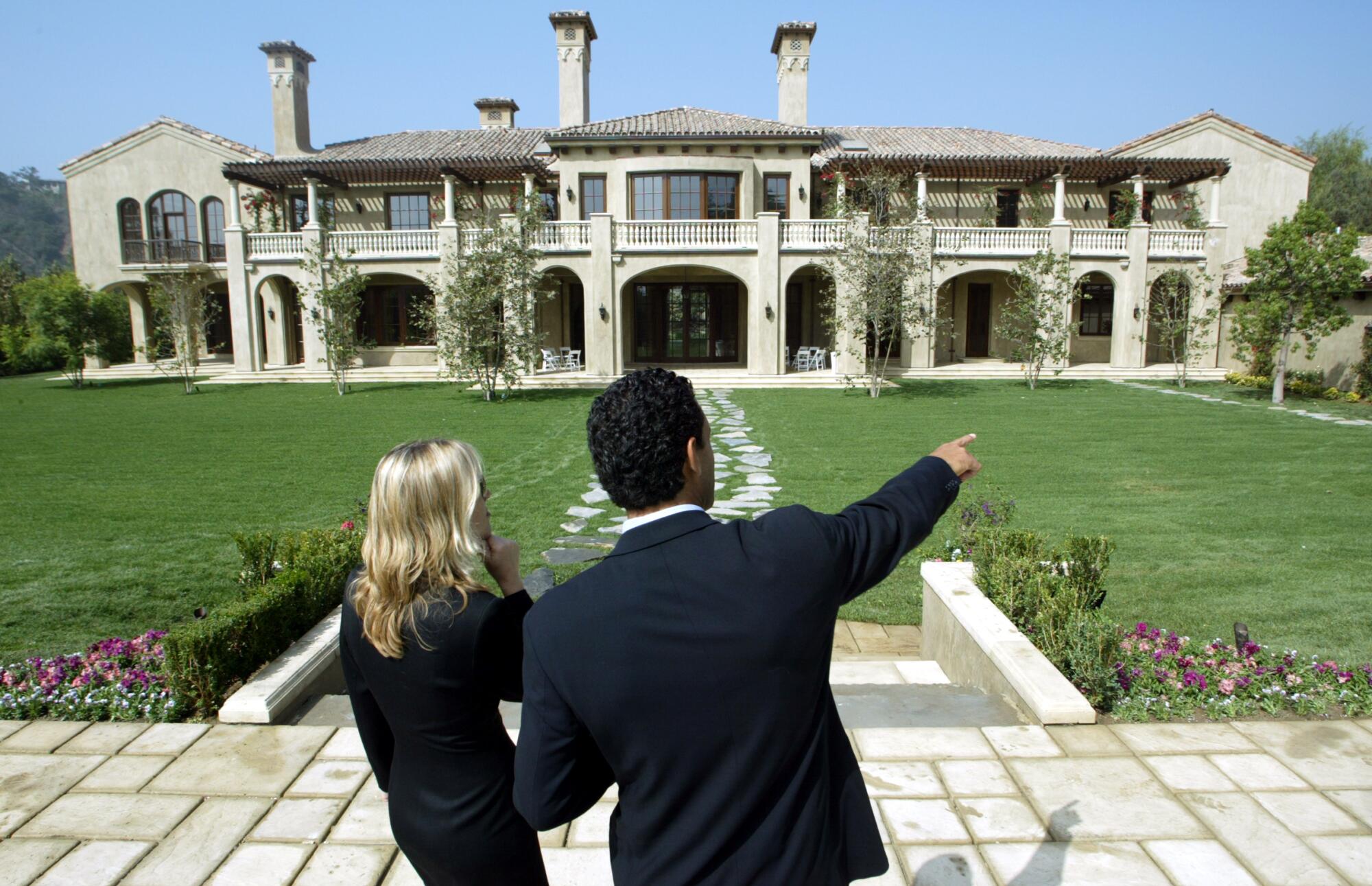
A 2003 Times profile of the developer describes him as a child of immigrants from Mexico City who attended USC — just like Umansky — and who shared “a first name, a love of golf, a focus on family life, and a long friendship” with the broker. At the time, they were also sharing a deal: a $19.75-million neo-Tuscan mansion in the ultra-exclusive Beverly Park neighborhood that Oberfeld had built and enlisted Umansky to sell.
A dozen years later, they would find themselves on opposite sides of an even bigger sale. Or so it would seem.
In actuality, the limited liability company fronted by Oberfeld, which included the co-owner of his development company and limited investors, had an unusual member when it closed the purchase on June 30, 2016 — none other than Umansky himself, a fact that would become public the next year.
As soon as the Malibu mansion was flipped in March 2017 for $69.9 million to an offshore shell company, the real estate media went to work dissecting the sale. Soon enough there was a report Umansky was a member of the limited liability company that sold the property, with the buyer identified as heiress Karen Lo, granddaughter of the founder of Vitasoy, a large Hong Kong soy drink manufacturer.
It didn’t go unnoticed by Nguema and his attorneys.
They sent Umansky a demand for mediation, saying he had steered the sale to Oberfeld, even though he hadn’t bid more than anyone else and later required financial concessions. The attorneys asked for a settlement of at least $8 million, saying that another bidder had offered to pay that much more for the property. (That bidder, it would later emerge, was Sam Hakim.)
The Agency made a claim to its insurer, Western World, but the company refused to pay. Instead, the insurer accused Umansky and the brokerage of failing to disclose its potential negligence and breach of fiduciary and statutory duties involving the Malibu home deal. The two sides reached an undisclosed settlement.
Nguema sued too and reached a settlement that, net of legal fees, was close to the alleged higher offer for the property: $6.35 million was added to the pot of money and was distributed by the Department of Justice to a nonprofit operating in Equatorial Guinea when the federal asset forfeiture case wrapped up last year.
(U.S. prosecutors at one point accused Nguema’s attorney of trying to transfer the settlement funds into the treasury of Equatorial Guinea in violation of the settlement agreement.)
The broker had put the litigation behind him, at a cost, but his legal woes would only get more complicated.
Spurned buyer
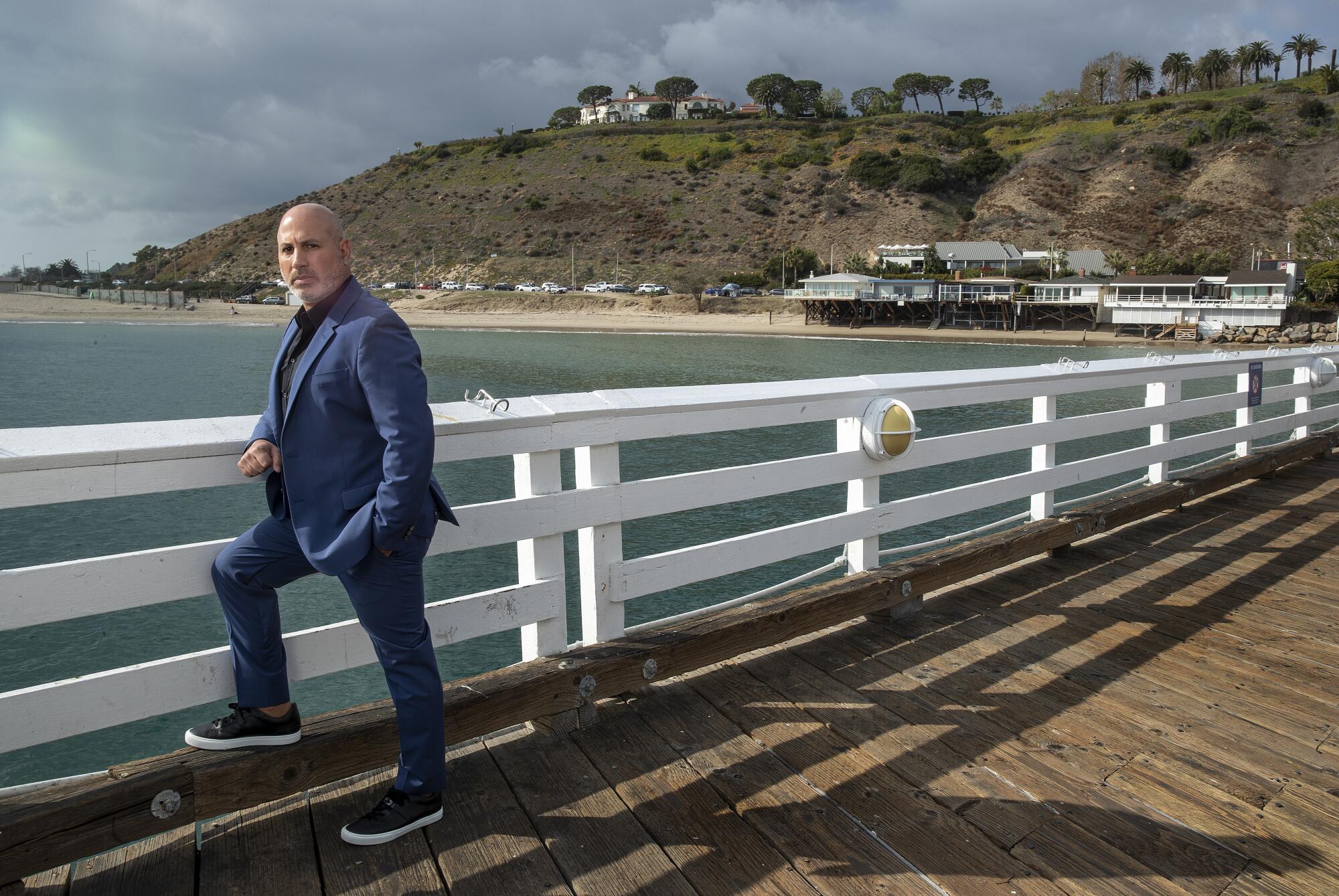
The Southern California high-end real estate market is a clubby affair, with many of the same investors and brokers working with one another on different deals. Hakim, a Beverly Hills resident, was counting on that fact to give him an edge in landing the Malibu estate.
Hakim, 47, who runs a family real estate firm that mostly owns multifamily properties, said he had met Umansky about 15 years earlier through a mutual friend. Hakim’s broker, Aitan Segal, had a connection too. The broker had shared a listing with Umansky on a $10-million home, and had a “good rapport” with him for more than a decade, according to the lawsuit filed by Segal.
The relationships and Umansky’s reputation as a top broker gave Hakim a good feeling about the deal. What’s more, the mansion seemed like a steal to him, given how heated the Malibu market had gotten.
So when Segal put in a written bid meeting the $32-million asking price in July 2015, the agent told Umansky his client would pay “significantly more” — in the range of $40 million to $45 million, according to Hakim’s lawsuit and his attorneys.
During a later tour of the property, Hakim and his broker told Umansky he would pay $40 million, according to the suit. But Hakim says Umansky told them that although he would relay the offer to Nguema, Hakim shouldn’t put it in writing since the owner was not profiting from the sale and was not motivated by price.
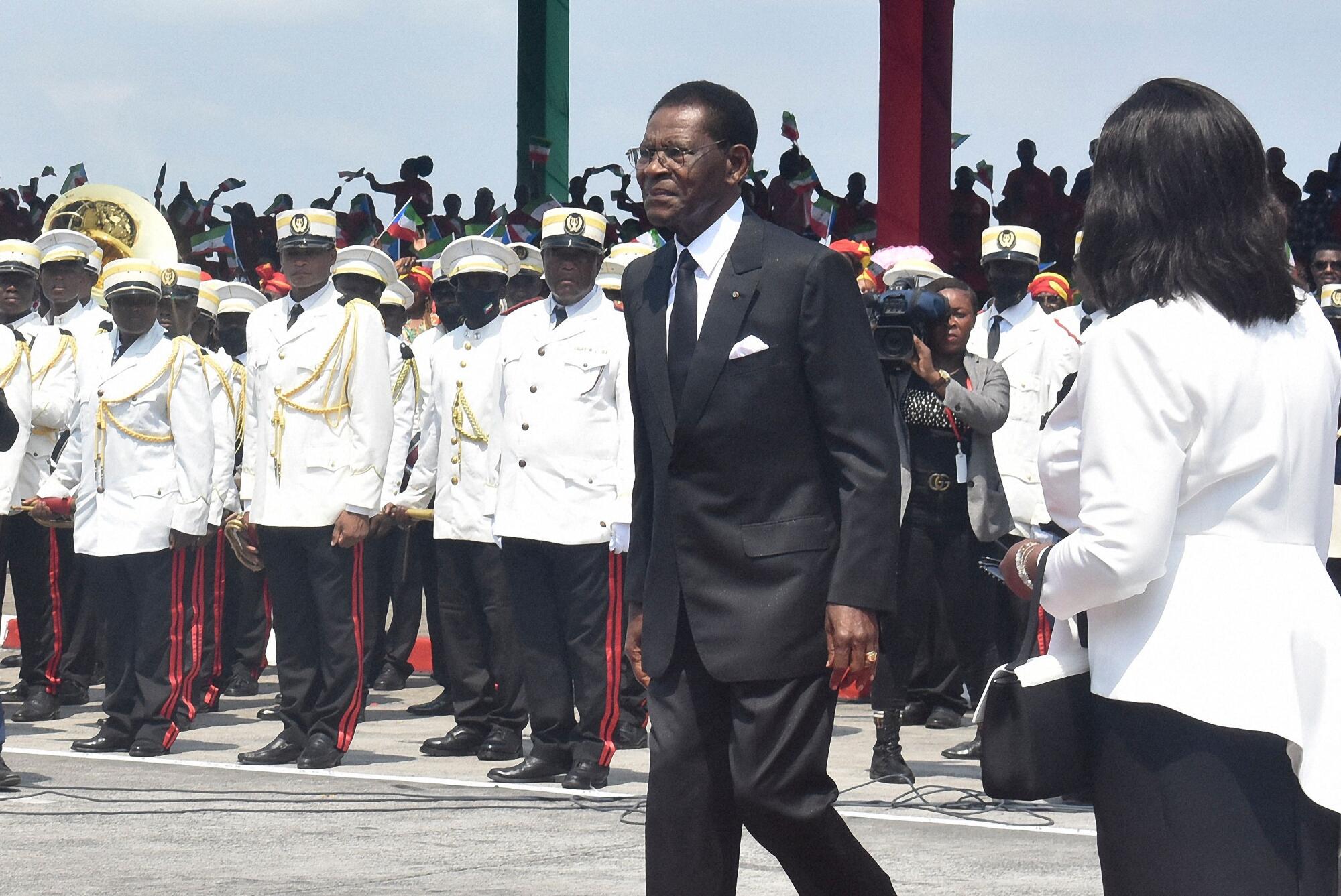
Nguema had received five offers, including from American designers Richard and Laurie Lynn Stark, British real estate investor Nick Candy and Ricardo Salinas Pliego, a billionaire Mexican telecommunications magnate. Nguema responded with $33.5-million counteroffers.
Candy was Nguema’s first choice, but when a deal was not reached with the British investor, Oberfeld secured the property in December 2015 for $33.5 million, though Hakim had met the counteroffer too. (The developer was later given a $1-million repair discount, bringing the purchase price down to $32.5 million.)
Although not the winner, when Hakim heard Oberfeld was the buyer, the investor thought he could strike a deal. It turned out, he said, the two had gone to high school together in Beverly Hills and Oberfeld’s sister was a close friend.
Oberfeld met with Hakim and Segal at the developer’s offices in February 2016. There, Hakim said, Oberfeld talked about his ideas to improve and flip the estate, displaying plans included in the court file that state: “Product in this class now sells over 60, even 70 million in Malibu.”
A few days later, Hakim sent Oberfeld a letter of intent to pay him $8 million to buy out his position. The developer countered with a demand for $15 million, prompting Hakim to walk away.
More than two years later, in August 2018, Hakim read an online article about how Umansky and the Agency had been sued by their insurer over the flip.
Hakim was stunned. He’d had no idea, he said, that Umansky had been in on the deal. As he considered the news, he said, he quickly came to believe that there was no way Umansky had relayed his verbal offer to Nguema.
More than three years after the sale closed, Hakim and Segal in September 2019 filed separate lawsuits in Los Angeles County Superior Court seeking damages. The current defendants include Umansky, Oberfeld, the investment vehicle that took legal ownership of the mansion and Umro Realty Corp., which does business as the Agency. The two sides are in dispute over other newly named defendants. Hakim told The Times he would donate a portion of any proceeds to the people of Equatorial Guinea.
It’s a case that has been bitterly fought given the dollars and reputations at stake, with Umansky denying that there was ever a higher verbal offer for him to pass on and portraying the whole thing as belated bitterness over a missed opportunity.
In court papers seeking to have the case dismissed, Umansky has characterized Hakim’s narrative as ridiculous on its face, asserting that any savvy real estate investor would have put such an offer in writing. Had Hakim actually expected him to pass along an offer of $40 million, Umansky argues, he would have known immediately that something was amiss when Nguema countered at $33.5 million and later when the sale closed at that price. That Hakim’s accusations didn’t come for years — after Umansky says the statute of limitations ran out — shows the offer was never real, he says.
In response, Hakim told The Times he and his agent “trusted” Umansky and believed the broker was trying to get him a good deal. He also said he accepted Umansky’s explanation that price was not the deciding factor in the sale given the unusual nature of the transaction and the involvement of the Department of Justice. His attorneys contend the clock on the statute of limitations started when Hakim read the article.
Most recently, the two sides have been fighting over a batch of February 2016 emails that Oberfeld’s attorneys want to keep out of the case but that Hakim’s attorneys say will help prove Umansky and Oberfeld were planning the flip from the time the broker got the listing. Oberfeld’s attorneys say they are protected attorney-client communications that involve only routine business matters, such as the establishment of the limited liability company that acquired the estate.
Timing is a key issue. Umansky told Nguema and the Department of Justice in June 2016 — weeks before the sale closed — that he had only recently been invited to participate in the buyers’ group.
But Judge Mark Epstein has cast doubt on that, noting in a ruling this summer that documents in the case establish there was a “concrete February 2016 plan for a joint partnership that had long been in the works.”
Mike Eriksen, director of the Dean V. White Real Estate Finance Program at Purdue University’s Krannert School of Management, said that brokers who are selling a property can participate in its acquisition under specific conditions.
“It is not forbidden, but the letter of the law is clear: All interests of the broker must be known. So if they have an equity interest they need to disclose it up front and in a timely fashion to all parties involved,” he said.
The plaintiffs also are seeking to depose all the limited investors to better understand how the investment vehicle was put together, a complex structure that profited Umansky at least $5 million, according to a deposition by Oberfeld.
In seeking to have the litigation thrown out, Oberfeld’s attorneys have made arguments similar to Umansky’s in court documents. They issued a statement to The Times saying the allegations against their client are “legally unfounded, false and meritless.”
“Mr. Oberfeld was invited to bid on the Sweetwater Mesa property and submitted a good-faith bid on the property without any knowledge of any offer by Mr. Hakim. Mr. Oberfeld’s bid was accepted only after another buyer’s offer did not work out. Mr. Oberfeld did absolutely nothing wrong and will eventually be fully vindicated in this case,” the statement said.
Valued partner
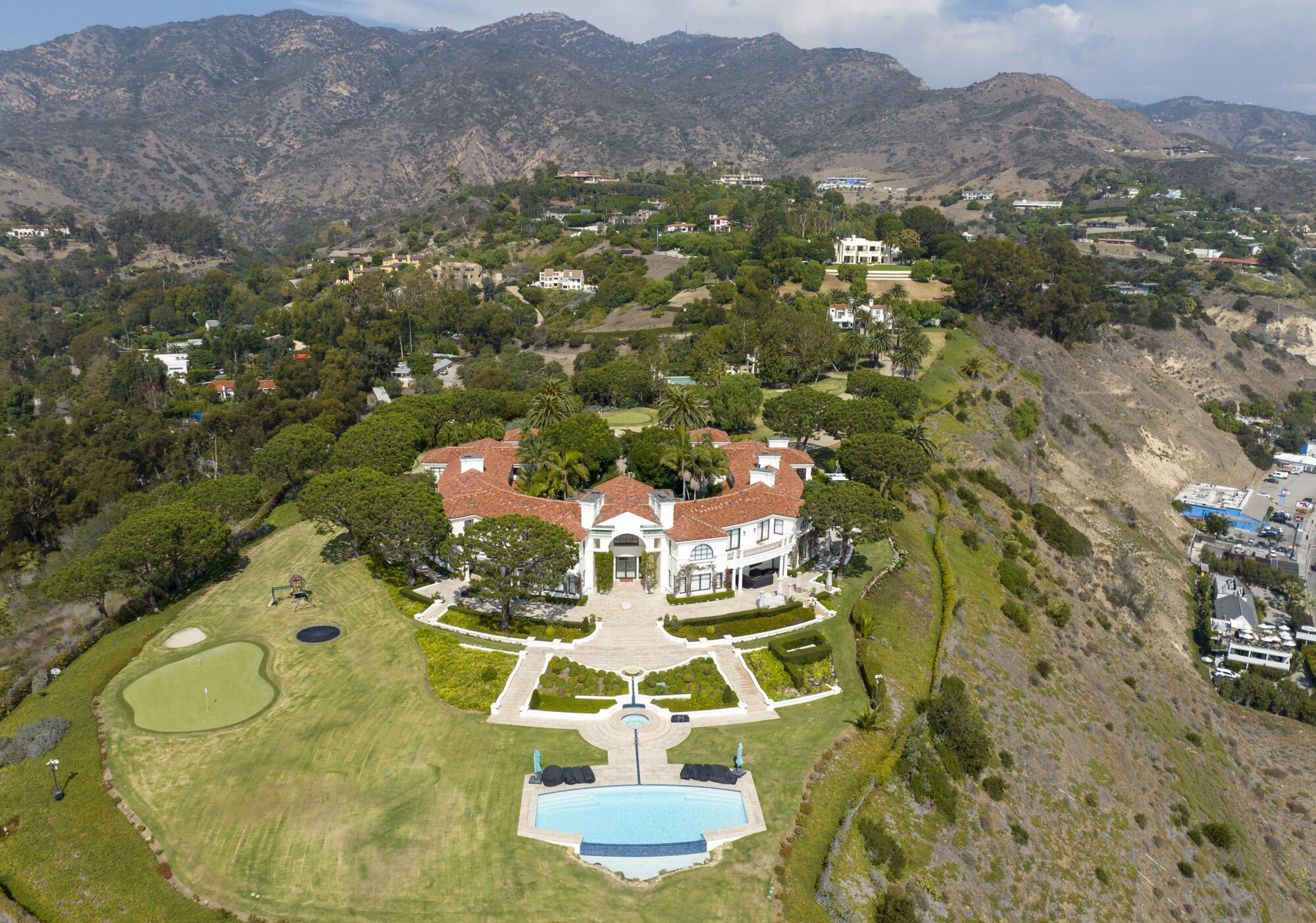
It’s surprisingly hard to say with certainty who owns the Malibu property these days.
The real estate media say the owner is Lo, but the owner of record is a shell company established in the British Virgin Islands called Malibu LaMalibu. The Times could not reach Lo for comment.
It was to plug such holes that Congress passed the Corporate Transparency Act two years ago.
The law requires shell and other companies to report the true, or beneficial, owners of property to the Treasury Department, which keeps that information confidential. Anti-corruption groups say it is a flaw in the law, noting that many other countries require public disclosure.
But there’s reason to question how aggressive the feds would be in going after Nguema’s wealth were the asset forfeiture case playing out today — given how the government’s strategic priorities have shifted.
Nguema, now vice president of Equatorial Guinea, still loves exotic vehicles and jet setting, judging from the exploits he posts on his Instagram page.
But his social media also present another persona: that of the maturing leader with stylish glasses, touches of gray and an impeccably tailored suit handling domestic affairs, meeting world leaders such as Turkish President Recep Tayyip Erdoğan and Pope Francis — and being courted by the Biden administration for his country’s new geopolitical importance.
Equatorial Guinea has a commercial deep-water port that, according to the Wall Street Journal, was built by a Chinese company and could serve as a staging area for the Asian country’s military vessels.
Last year, when Gen. Stephen Townsend, chief of the U.S. Africa Command, gave his annual briefing to Congress about the state of affairs on the continent, he said a Chinese military port on the Atlantic coast of Africa would pose a “significant threat” to the United States.
He was talking about Equatorial Guinea, where Jon Finer, the U.S. principal deputy national security advisor, led a delegation months later and shook hands with Nguema.
Nguema later posted a thank-you tweet with a video of a gift, a silver platter engraved with a U.S. government seal.
In November, he hosted yet another American official: David S. Cohen, deputy director of the Central Intelligence Agency.
Nguema had lost his Malibu home and its priceless view to anti-corruption prosecutors. But his new relationship with U.S. officials was satisfaction enough. He tweeted a video of that meeting too.
More to Read
Sign up for This Evening's Big Stories
Catch up on the day with the 7 biggest L.A. Times stories in your inbox every weekday evening.
You may occasionally receive promotional content from the Los Angeles Times.
